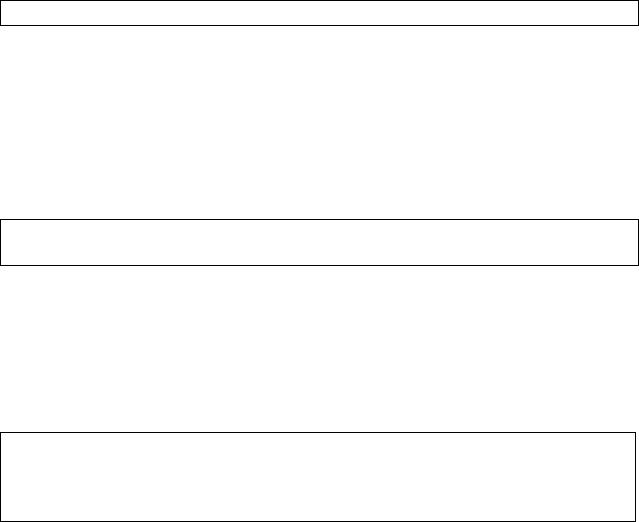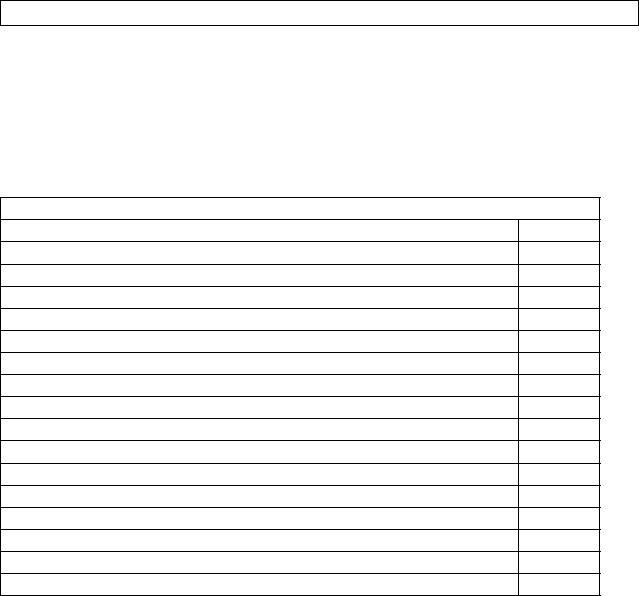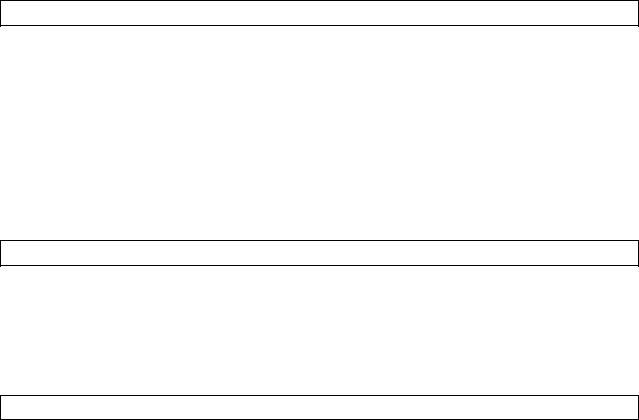
academic_matters[1]
.pdf
The main street of Rome is via del Corso, it stretches from Piazza Venetia to Piazza del Popolo... We were a little bit surprised to see the monument to A.S. Pushkin and N.V. Gogol there.
A walk in Venice is like a small trip, when you may visit many islands, have a water walk by canals.
Find in the Internet some information about these sights. Share it with your group mates.
2g Make the plan of the article and summarize it in 15 – 20 sentences taking into consideration your plan.
3.READING AND SPEAKING
3a You’ve got an invitation to participate in the Utrecht Summer School.
What information will you ask about if you have a talk with the representative of Organizing Committee:
Firstly?
Secondly?
Afterwards?
(For help look at the box below.)
Courses /About Utrecht & NL / Housing / Social Program / Application /Contact us
3b Here is some information you’ve got from a leaflet about the Utrecht Summer School. Be ready to inform your group mates about the program in general.
130 fascinating courses. Don't wait - apply now!
Utrecht University (the Netherlands) presents the 2012 edition of the Utrecht Summer School. The program is more elaborate than ever before. The selection is characterised by strong, academic summer courses on a very wide range of subjects.
|
Courses(see below) |
Social Program(see below) |
|
130 academic courses, in all disciplines |
Social activities, including sports, museum |
|
Utrecht University is offering. Lasting |
visits, drinks, city trips, parties and even our |
|
1 to 6 weeks. European Credits |
own film festival! |
|
provided for most courses. |
|
|
|
|
|
|
|
|
Accommodation/ Housing (see below) |
About Utrecht(see below) |
|
If you like, we can arrange fully |
With 65.000 students Utrecht is a real |
|
furnished student accommodation for |
student city. Utrecht has a historical city |
|
|
62 |

you. Saferooms, close to the university. center and a state-of-the-art university campus.
Courses
Culture : Humanities / history / society / media
Art & Design: Art history / performing arts / architecture / design Language: Dutch, Spanish, English, Italian, German / linguistics Social Sciences: Conflict, peace studies / geosciences / education
Law & Economics: Business (skills) / human rights / justice / econometrics Science: Mathematics / physics / informatics / earth sciences
Life Sciences: (Veterinary) medicine / pharmacy / chemistry / healthcare
Housing
ABOUT THE ACCOMODATION
Utrecht, with approximately 300,000 inhabitants, is the fourth largest city in the Netherlands. It is centrally located, very lively and offers all the advantages of a large city. Utrecht has long been a highly popular place to live, work and study, and as a result, accommodation is in high demand.
Finding accommodation in Utrecht is no simple feat. Owner-occupied houses are expensive, rents on the private market are rather high and you have to be on a waiting list for a few years before qualifying for a Council house. Many Dutch students and staff members have to commute for a year or more between their place of residence and Utrecht before they manage to find accommodation in Utrecht. Therefore, most Summer Schools offer temporary housing. Often the housing is included in the course fee.
ABOUT THE ROOMS
The student accommodations that are reserved for Summer School students are located throughout the city. All accommodation is situated within easily accessible distances from various educational institutions. They are in the University Centre the Uithof, in the city centre of Utrecht or its suburbs.
All rooms are fully furnished and decorated, and include crockery, cutlery, cooking utensils, cleaning materials and bedding. The rooms are either single or double rooms with shared facilities. Student cafeterias are mostly closed during summer, but in your residence kitchen you can find everything you need to cook a nice (Dutch?) meal*.
HOUSING PROCEDURE
Summer School generally tries to house students from one course in the same accommodation. Students form other courses might by housed together in the same building as well, which gives you the great opportunity to meet international students from other disciplines.
There are no standard combinations of specific courses and student accommodations. The housing of students of each course depends on the duration of the course and its number of participants.
Housing is provided from the Saturday before the course starts, until 12 noon on the last Friday of the course. In case the course ends on a Thursday, your lodging is still available until the Friday.
63

Social program
Utrecht Summer School not only offers you a fine selection of interesting courses in all kind of disciplines, it also aims at giving the participants an unforgettable stay. Therefore we invite all students during the months July and August to an attractive social program, including excursions, sports and social gatherings and festivities. The activities will provide the perfect setting for you to meet international students from other summer school courses and to get to know your classmates better!
3d Find in the Internet the information about other events and report them to the group.
3e In groups of 3 – 4 discuss: What are (from your point of view) the advantages and disadvantages of this particular summer school and such form of education in general. Prove your answer to the class.
4.WRITING
4a Fill in the Application Form for the Utrecht Summer School.
Both online application and payment are available for the course Dutch Culture: Society and Current Issues. Proceed by creating a personal user account. You can use your account for multiple course applications. If you already have an account please log in. If you do not have, then create your User Account.
CREATE A USER ACCOUNT
Account info
Email address *
Password *
Re-enterpassword *
Personal information
First name *
Middle name
Last name *
Gender * (Male /Female)
Date of birth *
Passport number *
Health problems
Nationality *
Address 1 *
Address 2
ZIP/Postalcode *
City *
Country * Include country + area code
64

Phone number *
Phone number 2
Emergency contact person
Phone number emergency contact person
Educational background
Major/main field of study * If applicable
Year/level
Home university
Have you ever studied Dutch? *
Source
Where did you learn about the Utrecht Summer School? *
Is this the first time you are attending Utrecht Summer School? *
Please read the Frequently Asked Questions first. www.utrechtsummerschool.nl
Utrecht Summer School
PO BOX 80148
3508 TC Utrecht
The Netherlands Phone: + 31 30 253 4400 Visiting address:
University College Campus Kriekenpitplein 21-22 3584 EC Utrecht
5.READING AND SPEAKING
5a Get acquainted with Frequently Asked Questions. Find the answers to them.
APPLICATIONS
How do I apply?
Until when can I apply for a course?
Are there any scholarships available?
How do I apply for the exchange courses (for Dutch students)?
Do I need a visa? How do I arrange it?
I have been accepted for a course, what to do now?
Can you send me a letter of acceptance?
How can I pay the course fee?
Can I get a refund if I have to cancel?
I have transferred the money, but the status of my application is still 'not paid'
65
CREDITS
Do I get credits for the course?
What is the equivalent of one ECTS credit?
LANGUAGES
Do I need to speak Dutch?
Do I need to take a TOEFL test?
HOUSING AND STAY
Where do I stay?
Are all apartments in the centre?
Will all students that attend the same course be housed together?
Is housing included in the course fee?
Does the housing include kitchens and bathrooms?
When can I move into my room and until when can I stay?
When can I collect my keys?
What should I do if I arrive when the key pick-up desk is already closed?
SOCIAL PROGRAMME
Is there a social program?
Are there separate programs for all courses?
APPLICATIONS Q:
A: You will find the application form under the button "Application" at this website, and at the specific course page. For most courses online application and payment is available.
Q:
A: This varies from course to course. Deadlines are mentioned on each course page. If you apply after the given deadline, sometimes we will be able to accept you. But the course can be fully booked. In that case you are too late. If you want to be sure, please contact the contact person you find under "information and registration".
Q:
A: This differs from course to course. Sometimes you qualify for a scholarship because your university has an agreement with Utrecht University, sometimes a foundation sponsors specific target groups, and in other cases the course leader gives a waiver to a few outstanding students. It is clearly indicated at the site, under "courses".
Q:
A: Utrecht Summer School runs at least four exchange programs with Spain, Italy, Portugal and France. These courses are meant for Dutch students, especially for those with a major study in the relevant language. Online application via this website usually starts in February. See this site.
Q:
A: Please see the website of the Dutch Ministry of Foreign Affairs. Utrecht Summer School doesn't send letters of invitation to participants.
Q:
66
A: If you have been accepted for a course, it is still important to pay the course fee as soon as possible. Placement will be based on the order of payment (first-come first-served). If you have paid, the course director will send you pre-departure information a few weeks in advance of the course. In the meantime, we ask course directors to post their schedules on the course pages.
Q:
A: Yes, if you have paid the course fee, we can send you a Letter of Acceptance by (regular) mail. This can be useful (or even necessary) for your visa application procedure. We only send letters of acceptance to people who need to apply for a visa. Contact us to request a letter of acceptance.
Q:
A: After your application has been accepted by the course director, you will receive a payment request by e-mail. You can pay online by credit card (Visa or MasterCard) or by wired transfer. To secure your place you should pay within 45 days after you have been accepted.
Q:
A: Costs will be owed in the event of cancellation or if the participant interrupts the course or ends it prematurely. These costs are as follows:
If the participant cancels more than 4 weeks before the start of the course, he/she will have to pay 15% of the full course fee (including housing).
If the participant cancels within one month before the start of the course, he/she will have to pay the full course fee.
Q:
A: International wire transfers may take up to 2 or 3 weeks to process internally. As soon as we have received your money, we will send you an email.
CREDITS Q:
A: In most of the cases we give credits. Those are ECTS credits, guaranteed by Utrecht University. It is up to your own university, however, to accept the credits in the context of your study. If you want to be sure on that, please contact your own study advisor. He or she can always contact our course leaders, in order to learn more about the content and the level of the course.
Q:
A: The European Credit Transfer System ECTS was developed by the Commission of the European Communities in order to provide common procedures to guarantee academic recognition of studies abroad. It provides a way of measuring and comparing learning achievements, and transferring them from one university to another. This is achieved through the use of a common ECTS credit unit and a common ECTS grading scale. The average course load for an academic year is 60 ECTS credits. That means that a week of serious studying is equivalent to more or less 1,5 ECTS.
67
LANGUAGES Q:
A: No, but it helps always if you made some effort before. We offer Dutch language courses for those who want to fully integrate into our culture!
Q:
A: No, we do not ask that. Be aware, however, that you have to be quite fluent in English. We expect you to be able to follow the lectures and to participate actively in the discussions.
HOUSING AND STAY Q:
A: All students will stay in one of the apartments for guest students. It is not possible to choose one of the locations yourself. For more information about the housing locations, see Housing.
Q:
A: They are never far away. Not more than 20 minutes biking from the university buildings. Most of them are closer.
Q:
A: We try to put students that are doing the same course as much as possible together. In order to manage that, we allocate rooms and apartments at the moment we know the right numbers. Therefore we guarantee lodging, but you will know quite late the exact place. At any rate you will be lodged together with other Summer school students.
Q:
A: In most of the courses: yes. Have a look under "Fee".
Q:
A: There is always at least a shared kitchen and a shared bathroom. Some rooms have even their own services. For more information about the housing locations, see Housing.
Q:
A: Housing is provided from the Saturday before the course starts, until 12 noon on the last Friday of the course. In case the course ends on a Thursday, your lodging is still available until the Friday. Rooms are available for the course period only; extending the renting period is not possible.
Q:
A: The key pick-up desk is open on Saturday and Sunday from 12 PM to 4.30 PM.
Q:
A: You can stay in a hostel for one night and pick up your key the next day. You may also try to find a class mate to pick up your key.
SOCIAL PROGRAM Q:
A: Yes there is. See Social Program for more info.
Q:
68

A: No, we always try to make students from different countries and different disciplines meet. Therefore a joint social program is important, we think.
5b Role-play. Divide the group into two parts. The participants should have time to prepare for the Role-play in advance.
Let Students from group A be the representatives of the Summer School Board (they should know the answers).
Other students(Group B) can ask FAQ (Frequently Asked Questions). They should know them, not read from book.
6. SPEAKING
6a Find in the Internet some information about three other summer schools or courses abroad.
What are the key factors that might influence you choice: price, location, curriculum, teachers or fellow-students?
6b Role-play:
Student A and Student B are discussing advantages and disadvantages of these three summer courses.
7.WRITING 1 (informal letter)
7a Imagine that you are going to participate in one of the three above mentioned summer courses. Write your e-pal where and when you are going, describe the features of the course, what you are going to visit in the new place and so on. Keep in mind the rules of writing informal letters.
8.WRITING 2 (formal letter)
8aScan the letter from the Director of the Centre for English Language Studies. Then choose the correct answer to each question.
1. What is the course about? a)British culture and education b)British politics and government c)British life and institutions
2. What visits have been arranged? a) the Houses of Parliament and the
British Museum
Mr Manfred Lipmann
b)the Scottish Parliament and Edinburgh Castle
c)the Tower of London and
3. |
Westminster Abbey |
When does the course begin? |
|
a) 1 July b) 1 June с) 1 August |
|
4. |
When does the course end? |
a) 23 August b) 23 June c) 23 July
Centre for English Language Studies
69
Maybackstr. 128 Airdale Castle
50670 Koln |
University of Helensburgh |
Germany |
Scotland |
Telephone: +44 (0) 206 548 3200
Email: info@helens.ac.uk
April 20 2009
Dear Mr. Lipmann,
Thank you for your letter enquiring about courses in British life and institutions. I am pleased to tell you that we will be offering such a course in our Summer School programme.
The course will be taught by Professor William Dawson, who has recently published a book entitled BritainToday,which has been highly praised by reviewers. The course is suitable for anyone interested in British culture. It will cover a wide range of topics concerning British life, institutions and attitudes. These include topics such as The Press and Media, Education, the British Sense of Humour and the British Film Industry. There will be a number of guest speakers, and visits have been arranged to institutions such as the Scottish Parliament and EdinburghCastle.
Finally, as you can see from the enclosed brochure, the course begins on June 1 and ends on June 23, with a farewell dinner.
We look forward to seeing you at the beginning of the course. If you need any further information, please do not hesitate to contact me.
Yours sincerely,
Jane Goodman
Director, English Language Summer School
8bLook through the “Letter conventions” below. Which of these statements are false? Correct them.
1.A formal letter should always have a date.
2.You put the address of the person you are writing to directly under your address.
3.You should begin a formal letter with Dear+first name + surname.
4.If you begin your letter with Dear+ name, you should finish it Yours faithfully not Yours sincerely.
5.You should end a formal letter by signing it, then printing your name and position.
6.In formal letters, you can use everyday language and short forms such as I'm and we're.
70

9.LISTENING AND WRITING
9a Listen to Manfred talking to his English friend, Louise L5.1 .
He needs more information about the course. Note down the six points which he needs more information about.
9b Look again at the letter from Jane Goodman and underline the phrases used for beginning and ending the letter, and offering information.
9c Work with a partner to draft a reply to Jane Goodman and decide in which order you are going to cover the points you’ve noted, and make a paragraph plan.
9d Work with another pair and exchange your letters. Comment on the other pair's letter, paying attention to its organization, content, language and style.
9e Make a final draft of your letter.
10.READING AND WRITING
10a Read an email from an e-tutor to a student who is studying on a distance-learning course and choose the correct verbs.
Dear Julia
You have 1made /done good progress this term with your work. 2Taking / Solving an online course doesn't seem to have caused you any difficulties. You 3got / studied good grades on both your essays even though you 4handed / took the second in a week late, which affected your overall grade. Please 5make/do your best to follow the schedule or you may find it difficult to keep up.
With regard to the test that you 6 failed / graduated, remember that you are able to 7retake / remake it at the beginning of next term. So don't forget to spend part of your winter break 8passing / revising for it. You also mentioned that you might not be able to 9go / find to the summer school in July. This is a really important part of the course and will help you 10get /make a good degree, as well as giving you the chance to meet other students and your tutors face to face.
10b Imagine you received a progress report from your English tutor. What do you think it would say? Write the report and show it to your tutor. Does he/she agree with you?
WATCH AND STUDY ABROAD 5
a Find the meaning of new words in the dictionary:
71
